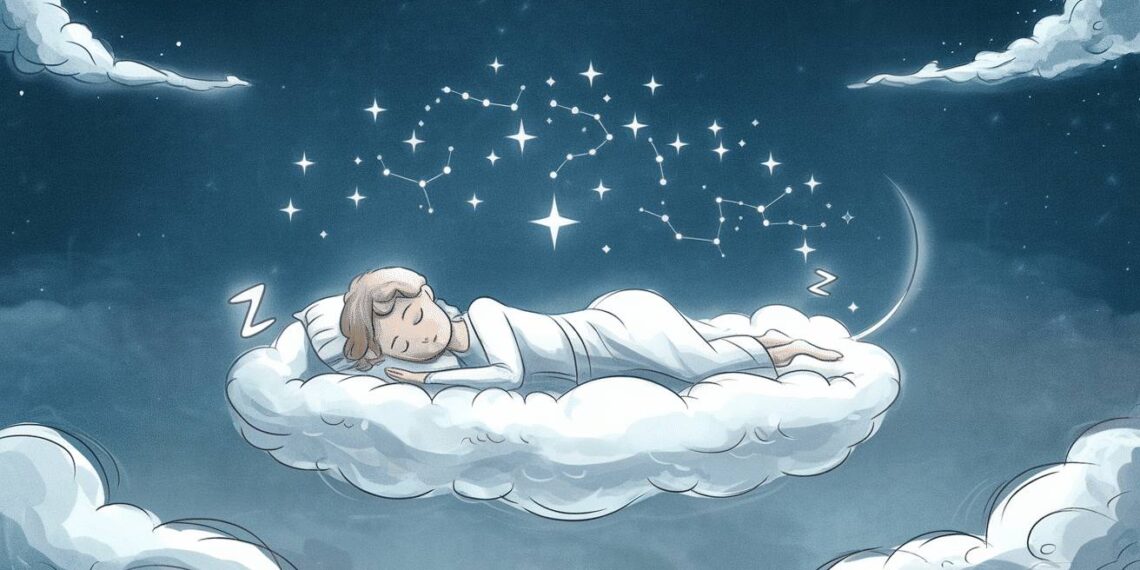Ever feel like the Sandman skipped your house? Whether it’s restless nights, endless tossing and turning, or waking up feeling like a truck ran you over, sleep disorders might be stealing your precious Z’s. Today, more than ever, restless nights haunt professionals, parents, fitness buffs, and students alike. With the rising awareness of how sleep impacts overall health, understanding these disorders isn’t just science—it’s survival. Dive into this guide to uncover the various forms of sleep disruptions, their sneaky triggers, and actionable tips to reclaim your nights. Let’s make good sleep your superpower again.
Key Takeaways
- Sleep Disruptors: Insomnia, sleep apnea, restless leg syndrome, narcolepsy, and REM sleep behavior disorder are common sleep problems, each with unique challenges.
- Impacts: Sleep disorders affect physical (e.g., heart health, metabolism) and mental health (e.g., depression, anxiety, memory).
- Risk Factors: Stress, poor routines, health conditions, diet, and even lifestyle choices can cause or worsen sleep issues.
- Solutions: Lifestyle changes like keeping a proper schedule, improving your sleep environment, and managing stress complement therapies and medical treatments.
Understanding Sleep Disorders
What Are Sleep Disorders?
Sleep disorders mess with your sleep mojo, throwing off your snooze game and waking life. They keep you from drifting off, slumbering peacefully, or catching enough zzz’s, leaving you dragging all day. Knowing the ins and outs of these nuisances is key—’cause who doesn’t want to hit peak life vibes? Doesn’t matter if you’re a swamped worker, a frazzled parent, a night-owl student, or simply getting on in years, sleep quirks can knock at your door.
Types of Common Sleep Disorders
Here’s a rundown of the usual suspects in the world where dreams and sleep battles exist:
| Sleep Disorder | Description |
|---|---|
| Insomnia | Can’t sleep for days—or staying asleep like chasing the impossible dream. Get the lowdown on insomnia. |
| Sleep Apnea | Breathing starts and stops like a faulty engine when the lights are out. |
| Restless Legs Syndrome (RLS) | Legs have a party at night, with tingles and an itch to move. |
| Narcolepsy | Two word: sleep attacks. Daylight’s totally not safe anymore. |
| REM Sleep Behavior Disorder | Act out dreams like you’re in the middle of an action movie. |
These issues aren’t a hit at the health party, messing with how somebody lives their life. Like, if tossing and turning is your night-time tune, maybe it’s time to check into natural sleep aids to catch those elusive zzz’s. Knowing what kind of sleep havoc is messing with your life helps in nailing the right fixes, like better sleep habits.
“Your body hears everything your mind says. Let it rest in peace, not pieces.”
Sleep problems don’t pull punches—they’ll rain on both physical and mental health parades. Spotting the red flags can get you back on track fast. For a deeper dive into the sleepy stuff and how kicking those disorders influence whole-life vibes, check out our bits on sleep mental health and its ties with total wellness. You’re not just reading about sleep—you’re making zzz’s great again.
Impact on Different Groups
Busy Professionals
These folks are usually burning the midnight oil, juggling a million tasks and staring at their phones like it’s their best friend. Stress and hectic schedules are making them toss and turn instead of snooze. They might benefit from a chill sleep routine and fine-tuning their stress busters for bedtime to catch those Zs.
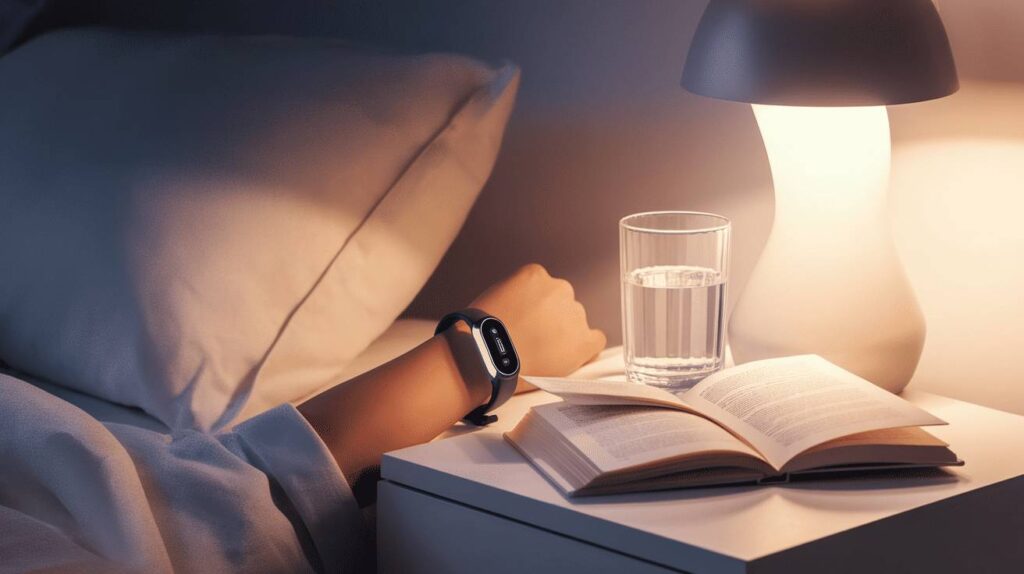
Parents
They’ve got tiny alarm clocks—aka kids—who don’t come with a snooze button. Parents, especially of newborns or toddlers, are often left yawning through the day. Snooze hacks like revamping the bedroom vibe and syncing bedtimes for the whole gang can make a world of difference.
Older Adults
As time ticks on, many older folks find their sleep taking a hit. Conditions like sleep apnea or those restless legs are no help. Some natural snooze aids paired with a calming nightly ritual can sweeten their slumber.
Individuals with Chronic Health Conditions
Struggling with chronic issues like heart stuff or constant aches can make a good night’s sleep feel miles away. But with a little professional advice and proper sleep habits, they might just coax their sleep back on track.
Fitness Enthusiasts
Got those gym buffs who think a good night’s sleep is their secret sauce. But sometimes their own high-octane life throws sleep for a loop. Striking a balance between workout recovery and rest, and maybe tossing in some zen time before bed, can keep them dreaming sweetly.
Students
Between cramming for exams and binge-watching late-night shows, students can really mess up their sleep schedule. A solid sleep plan and a little Zen magic might just save their grades and their sanity.
Shift Workers and Frequent Travelers
Whether they’re hopping across time zones or working the graveyard shift, these folks know insomnia all too well. Sleep becomes a guessing game. But with tricks like quick naps and handy sleep gizmos, they can find their rhythm.
Wellness-Conscious Individuals
The crew who’s all about that natural life, searching high and low for better sleep hits. They’re into oils, yoga, and smart meal plans to get the best rest. Diving into sleepy-time yoga or tweaking their diet for dream land could be their go-to moves for better nights.
Symptoms and Effects
Signs of Sleep Disorders
Sleep problems can pop up in all sorts of ways, affecting everyone a bit differently depending on how they live, how old they are, and their overall health. Spotting these signs quick is key to getting help when you need it. Some common red flags are:
- Trouble nodding off or staying asleep
- Feeling drained during the day
- Snoring like a freight train or gasping for air while asleep
- Being grumpy or having mood swings
- Waking up with a headache
- Tossing and turning all night (a.k.a. insomnia)
- Can’t-stop-moving-your-legs syndrome
- Bad dreams or night terrors
These signs often hint at bigger sleep issues that might need a closer look and a little help to manage.
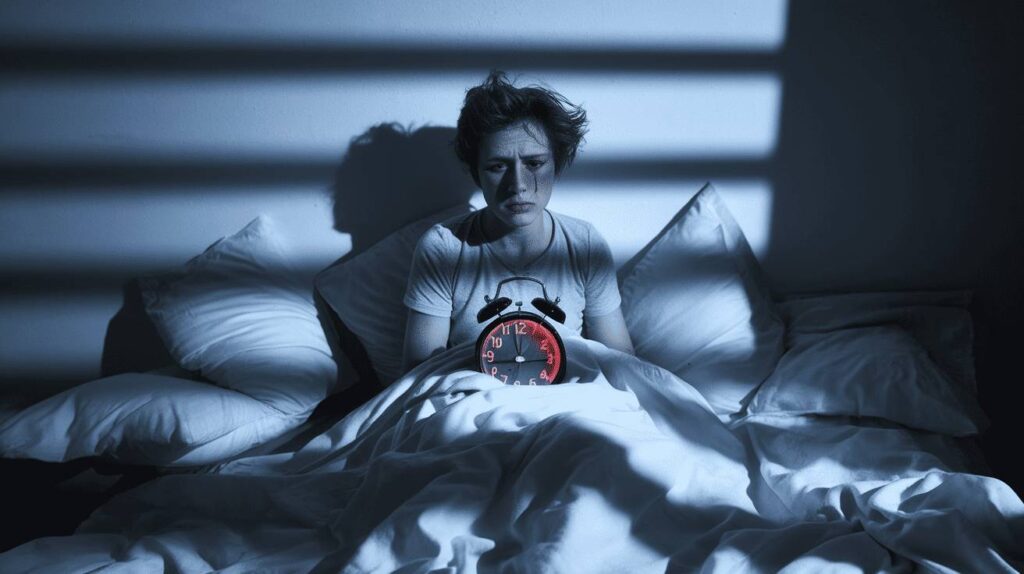
Effects on Physical and Mental Health
Sleep troubles can mess with your body and mind in pretty big ways. Here’s how they can shake things up:
Physical Health Effects
| What Can Go Wrong | What Sleep Problems Do to It |
|---|---|
| Heart Health | Messed up sleep makes heart issues more likely |
| Getting Sick | Weakens your defenses against bugs and other nasties |
| Gaining Extra Pounds | Messes with hunger hormones and makes you snack more |
| Sugar Levels | Throws off how your body handles sugar |
| Blood Pressure | Hits the roof without enough good sleep |
| Hurting All the Time | Makes your body more sensitive to aches and pains |
Mental Health Effects
| What’s Up Mentally | When Sleep Goes South |
|---|---|
| Feeling Down | Can make depressive feelings worse |
| Freaking Out | Pumps up anxiety levels |
| Brain Power | Zaps your focus and memory |
| Emotional Rollercoaster | Cranks up irritable moods and messes with emotions |
| Stress Levels | Makes handling everyday stress tougher |
Knowing what to look out for when it comes to sleep problems is the first step toward getting better. Managing these usually means making lifestyle tweaks, working on better sleep habits, and maybe trying natural sleep aids to up your sleep game. Sorting out any health hiccups can also go a long way in cutting down those pesky sleep issues.
For more on how sleep ties into feeling mentally okay, check out our article on sleep mental health.
Want to tackle sleep troubles head-on? Discover how sticking to a solid sleep schedule and creating a cozy place to crash can make a world of difference.
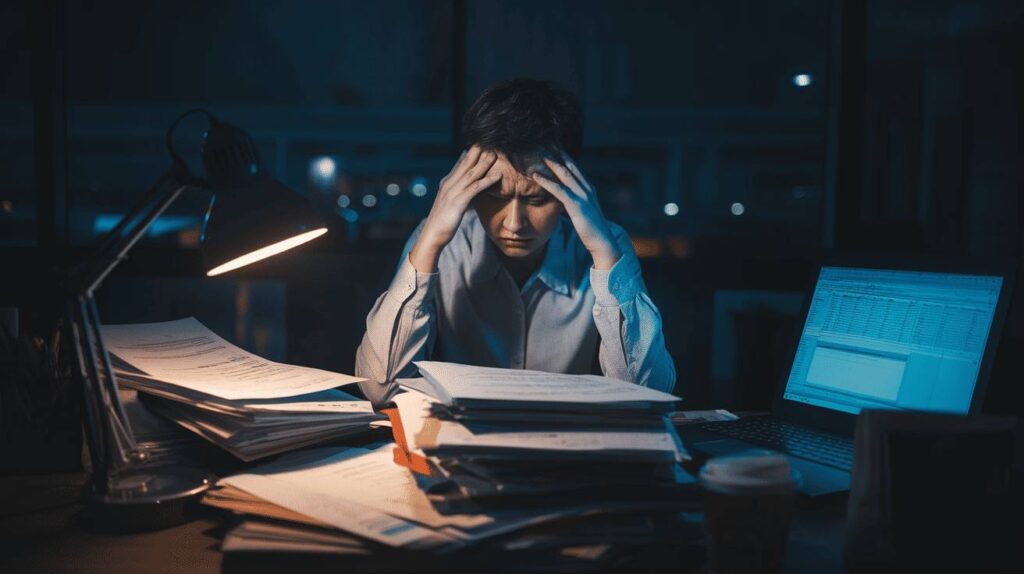
Causes and Triggers
Common Causes of Sleep Disorders
Sleep issues can pop up for a bunch of reasons, some more often than others. Figuring out the root cause can help folks and their docs get on the right track to fixing the problem.
- Medical Conditions: Things like asthma, arthritis, and that nagging chronic pain can mess with your sleep. Diabetes and heart disease join the party too, throwing off your Zzzs.
- Mental Health Issues: Feeling anxious, stressed, or down can really mess with your sleep schedule. These mental health bumps can lead straight to tossing, turning, and sleepless nights.
- Medications: Some drugs, like those you take for asthma, blood pressure, or depression, might make sleep a bit of a nightmare as a pesky side effect.
- Lifestyle Choices: Staying up late, drinking too much coffee or knocking back alcohol, and avoiding exercise are all recipes for crummy sleep.
- Genetics: If sleep troubles run in your family, like sleep apnea or restless legs, well, thanks to the family tree for that gift.
Triggers and Contributing Factors
A bunch of things can flare up or worsen sleep disorders, making it hard to snooze soundly. These triggers come in all shapes and sizes, depending on how you live, where you live, and your daily habits.
- Stress and Anxiety: Feeling stressed or super nervous? That’s like putting up a neon “Closed” sign on your good night’s sleep. Chilling out with techniques, like meditation for sleep or stress management for sleep, can help.
- Poor Sleep Environment: An old mattress, the wrong pillow, street noise, or way-too-bright lights can wreck a night’s rest. Check out bedroom optimization for sleep to transform your sleep zone.
- Irregular Schedules: If you’re working weird hours or traveling here and there, your sleep cycle might be out of whack. Setting up a regular sleep routine can help sync things back up.
- Dietary Habits: Eating big dinners or chugging caffeine before bed? Not great ideas for solid sleep. Get the lowdown in our diet and sleep article.
- Lack of Physical Activity: Working out is basically a sleep booster, but timing matters. Learn about how exercise and sleep work together to get it right.
| Trigger | Impact on Sleep |
|---|---|
| Stress and Anxiety | Hard to drift off or stay asleep |
| Poor Sleep Environment | Sleep gets interrupted, and feels like a long night |
| Irregular Schedules | Makes a mess of your sleep cycle, unpredictable rest |
| Dietary Habits | Leads to broken sleep or insomnia |
| Lack of Physical Activity | Dips in sleep quality, more challenges falling asleep |
If you’re wrestling with sleep disorders, tackling these triggers with lifestyle tweaks and healthy sleep strategies can be a game changer. For more ideas, explore our insights on sleep hygiene and natural sleep aids.
Seeking Help and Diagnosis
Figuring out what’s behind those sleepless nights is a big step. Not only will it help you catch more Z’s, but it can also put your mind at ease knowing there’s a plan in place.
Consulting Healthcare Professionals
Kicking off the battle against sleep disorders starts with chatting with some medical experts. We’re talking about your regular doc, specialists who dream about sleep (literally), and the mental health pros. They can give you a game plan and a better understanding of what’s going on.
Who’s Who in the Sleep Help Squad:
- Primary Care Physicians: They’re usually the first stop. They’ll check you out and might point you to a specialist if needed.
- Sleep Specialists: They’re the pros when it comes to sleep. They’ll dig deep and come up with treatments tailored to you.
- Psychologists and Psychiatrists: They tackle the mental stuff that can mess with your sleep, using therapy and other tools to help out.
Diagnostic Tests and Assessments
To really get to the bottom of a sleep disorder, a handful of tests might be in order. These tests paint a clear picture of how you snooze and snore, helping doctors pinpoint what’s up.
Some of The Sleep Tests:
| Test | What It Does |
|---|---|
| Polysomnography (PSG) | It’s like an overnight watch party for your brain waves, heart rate, oxygen levels, and how you breathe. |
| Multiple Sleep Latency Test (MSLT) | Looks at how fast you can doze off when it’s calm and quiet around you. |
| Home Sleep Apnea Testing (HSAT) | A DIY option for catching signs of sleep apnea at your place. |
| Actigraphy | A watch-like gadget tracks your sleep-wake cycles over time. |
These tests dish out details on your unique sleep story, paving the way for spot-on diagnosis and treatment tweaks. For instance, PSG can flag sleep apnea, insomnia, or restless legs, while MSLT often zeroes in on narcolepsy.
By getting clued up on these tests and the experts involved, you’re breaking down the walls of confusion. Need more on keeping your sleep ship-shape? Check out our pieces on sleep hygiene and sleep routine.
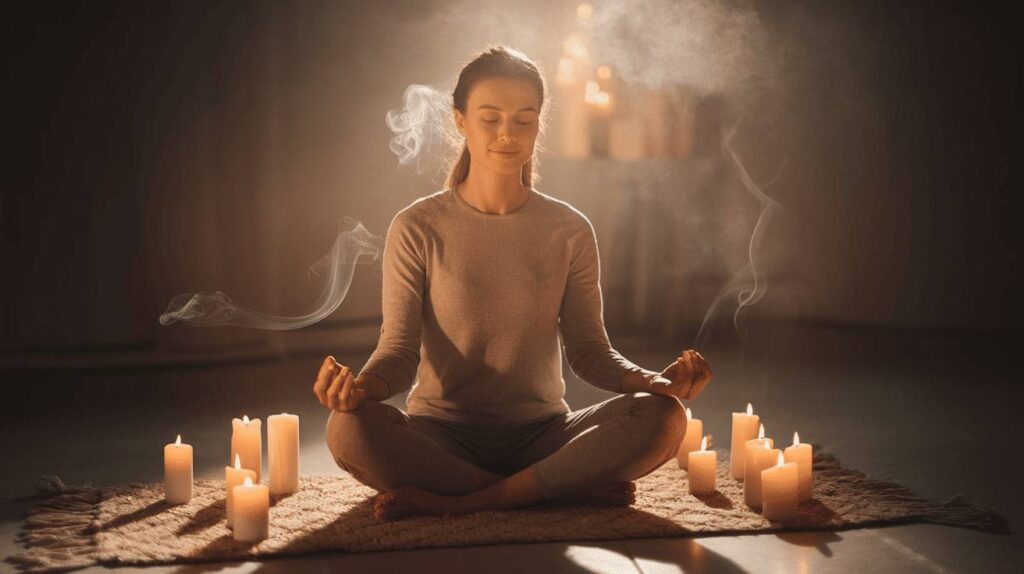
Treatment Options
When you’re struggling to get some decent shut-eye, you gotta try a little bit of everything. From tweaking a few habits to enlisting the pros, finding what works might just turn those sleepless nights into sweet dreams. Here’s a rundown on how you can tackle sleep issues.
“A good laugh and a long sleep are the best cures in the doctor’s book.” – Irish Proverb
Lifestyle Changes and Sleep Hygiene
Fixing up your sleep isn’t rocket science—it’s all about the little things. Change your routine up a bit and you’ll likely crash better at night. Here are some things that can crank up your snooze game:
- Stick to a Routine: Hit the hay and rise at the same time every day—you’ll train your body to know when it’s showtime. Check out sleep routine for more tips.
- Set the Scene: Your bedroom should be your sleep sanctuary—think cozy bed, pitch-black curtains, and peace and quiet. Get some ideas from our piece on bedroom optimization for sleep.
- Ditch the Screens: Shut down screens at least an hour before bedtime. The glow messes with your shut-eye cycle.
- Get Moving and Eat Right: Regular exercise and smart eating habits can boost your Zzz’s massively. Dive into the deets with exercise and sleep plus diet and sleep.
| Habit | Sleep Boost |
|---|---|
| Sticking to Schedule | Keeps sleep steady |
| Cozy Bedroom Vibes | Elevates relaxation |
| Screen Timeout | Cuts bedtime drama |
| Fitness Routine | Sparks better sleep |
| Healthy Eating | Promotes good slumber |
Therapy and Counseling
At times, the hustle in your brain might be what’s messing with your nights. Therapy can swoop in and help clear those mental roadblocks. Here’s what’s out there:
- Cognitive Behavioral Therapy for Insomnia (CBT-I): It’s a fancy way of saying, “Let’s change how you think about sleep,” and it works wonders on stubborn insomnia.
- Relaxation Techniques: Stuff like deep breaths, meditation for sleep, and yoga for sleep can ease you into sleep mode.
- Stress Relief: Taming stress with counseling can banish sleep woes fueled by worry. Get a crash course in stress management for sleep.
Medications and Alternative Treatments
Sometimes a little extra help is needed—meds or alternative paths might just do the trick. Chat with your doc to figure out what’s best.
- Medications: Sleep pills could help, but they’re not candy—take them carefully and only when advised.
- Natural Goodies: Stuff like essential oils for sleep and natural sleep aids can gently nudge you to dreamland.
- Offbeat Therapies: Things like acupuncture, massages, and other chill-out methods can sidekick your main treatment. They’ve shown promise in giving the sandman a hand.
Got some specific sleep niggles? Maybe it’s time to try some gadgets. Peep our picks for best sleep trackers and best sleep apps to see exactly how you’re sleeping and what you might tweak.
Kicking sleep issues to the curb takes a team effort of lifestyle tweaks, therapy digs, and maybe even some medical muscle. Everyone’s sleep story’s different, so find what grooves with you.
Tips for Better Sleep
Getting good sleep’s like winning a tiny lottery every night. Let’s spill the beans on catching those Z’s and squashing sleep issues.
Establishing a Regular Sleep Routine
Getting into a groove with your sleep schedule is like teaching your body to dance. Keeping a steady beat can help you nod off and pop out of bed smoothly.
- Stick With Your Sleep Times: Hit the sack and get up around the same time, even if it’s the weekend and cereal cartoons are calling.
- Keep Catnaps Short: Snoozing during the day can mess with your nighttime slumber. If you must nap, make it a power nap (20-30 minutes).
- Wind-Down Activities: Melt away the day’s stress with some chill time – read a book, groove to mellow tunes, or try a bit of meditation to tell your body it’s bedtime.
For more dirt on sleep routines, check out this article.
Creating a Relaxing Sleep Environment
Where you sleep is like your personal cocoon – make it snug to max out those fifty winks.
- Comfy Bedgear: Make sure your bed rivals a cloud in comfort. To up your bed game, peek at the best mattresses for health.
- Manage the Light Show: Use blackout curtains to pull the plug on any light. Maybe even dim the cool lights before snooze town.
- Chill Zone: Keep the temperatures Goldilocks-approved, not too hot, not too cold – around 60-67°F (15.6-19.4°C).
- Sound of Silence: Block the noise gremlins with earplugs or go for some white noise action.
Get all the deets on cozying up your sleep space over at bedroom optimization for sleep.
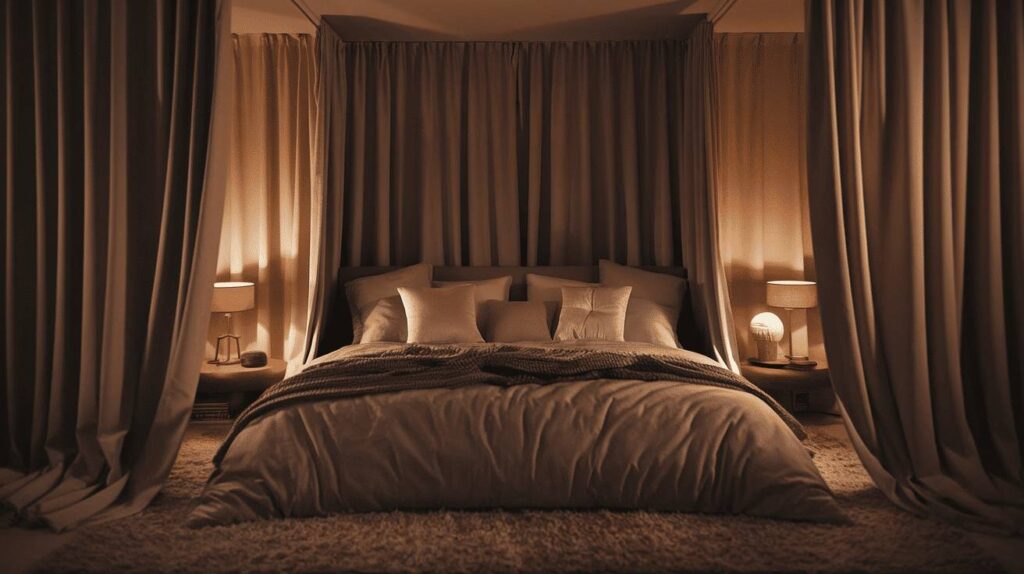
Practicing Stress-Relief Techniques
Keeping cool like the other side of the pillow can seriously up your sleep game. Mix some stress-busting moves into your day to ease into slumber.
- Get Moving: A bit of exercise tunes down the stress and ups the sleep quality. Shoot for a half-hour of activity most days. For the full scoop, see exercise and sleep.
- Mindful Chillin’: Try out deep breaths, meditation, or some good ol’ muscle relaxation. Find out more in meditation for sleep.
- Yoga to the Rescue: Use yoga to chill both body and mind. Check out more about yoga for sleep.
These tactics can be your secret weapon in stress-busting and lifting your sleep quality. For more sneaky stress tricks, visit our piece on stress management for sleep.
Bringing these moves into your day-to-day can pimp your sleep game and help with sleep quirks. Dig deeper into the love story between sleep and wellness, and find some sweet natural hacks in our take on natural sleep aids.
Tips for Better Sleep
- Stick to a sleep schedule—even during weekends.
- Avoid caffeine and heavy meals close to bedtime.
- Exercise regularly but at least 2-3 hours before sleeping.
- Use blackout curtains and white noise to block disruptions.
- Practice mindfulness or guided breathing for better relaxation.
Conclusion: Restored Nights, Restored Lives
Sleep is the cornerstone of vitality, yet millions suffer in silence as sleep disorders wreak havoc on their physical and mental health. From the restless night dances of insomnia to the breath-interrupting battle with sleep apnea, the impact spans all demographics—working professionals, parents balancing midnight cries, seniors combating age-related disturbances, and even fitness enthusiasts overworking their bodies. Understanding the culprits—be it health issues, stress, or poor routines—makes it possible to take action.
Through practical habits like regular routines, stress relief techniques, and cozying up your sleep space, you can gradually reclaim restful nights. For tougher battles, therapy, medical expertise, and innovative tools or devices can spell relief. Good sleep isn’t just a luxury—it’s your secret weapon for sharper days, better vibes, and longer, healthier living. It’s time to prioritize your sleep. After all, the right snooze unlocks the best version of you.
FAQs with Answers
What are common types of sleep disorders?
Common sleep disorders include insomnia, sleep apnea, restless leg syndrome, narcolepsy, and REM sleep behavior disorder. Each has different symptoms and challenges, from difficulty falling asleep to disrupted breathing or sudden sleep attacks.
What causes sleep disorders?
Sleep disorders can be caused by stress, health conditions (like heart disease or diabetes), poor sleep habits, medications, and genetics. Identifying the exact cause is crucial for treatment.
How do sleep disorders affect health?
They disrupt both physical health by increasing risks of heart problems, obesity, and pain, and mental health by amplifying anxiety, depression, and memory issues.
Can sleep disorders be treated?
Yes, treatments range from lifestyle adjustments and therapy (like CBT-I) to medical interventions, medications, or natural sleep aids. Consulting a professional is the first step.
How can I improve my sleep habits?
Stick to a regular bedtime, create a comfortable sleep environment, avoid screens before bed, and practice relaxation techniques. Small steps can make big differences.
Resources
- National Sleep Foundation: Sleep and Health Insights
- CDC Sleep Tips: Centers for Disease Control and Prevention
- Meditation for Sleep: Headspace Sleep Meditation
Final Thoughts
Your body’s downtime is its ultimate recovery time. Sleep disorders may seem like a nighttime nuisance, but their ongoing effects can ripple throughout your waking life—impacting everything from your memory to your heart health. By understanding the types of sleep disorders, uncovering their causes, and embracing tailored treatments, every individual has the power to transform their nights and achieve full recovery. Dream big but sleep well—every great day begins the night before.
Recommended Products
- Sleep Aid Device: Hatch Restore Sleep Machine
- Comfortable Mattress: Tempur-Pedic TEMPUR-Align
- White Noise Machine: LectroFan High Fidelity
- Essential Oils: Lavender Essential Oil
- Sleep Tracker: Fitbit Versa 4

